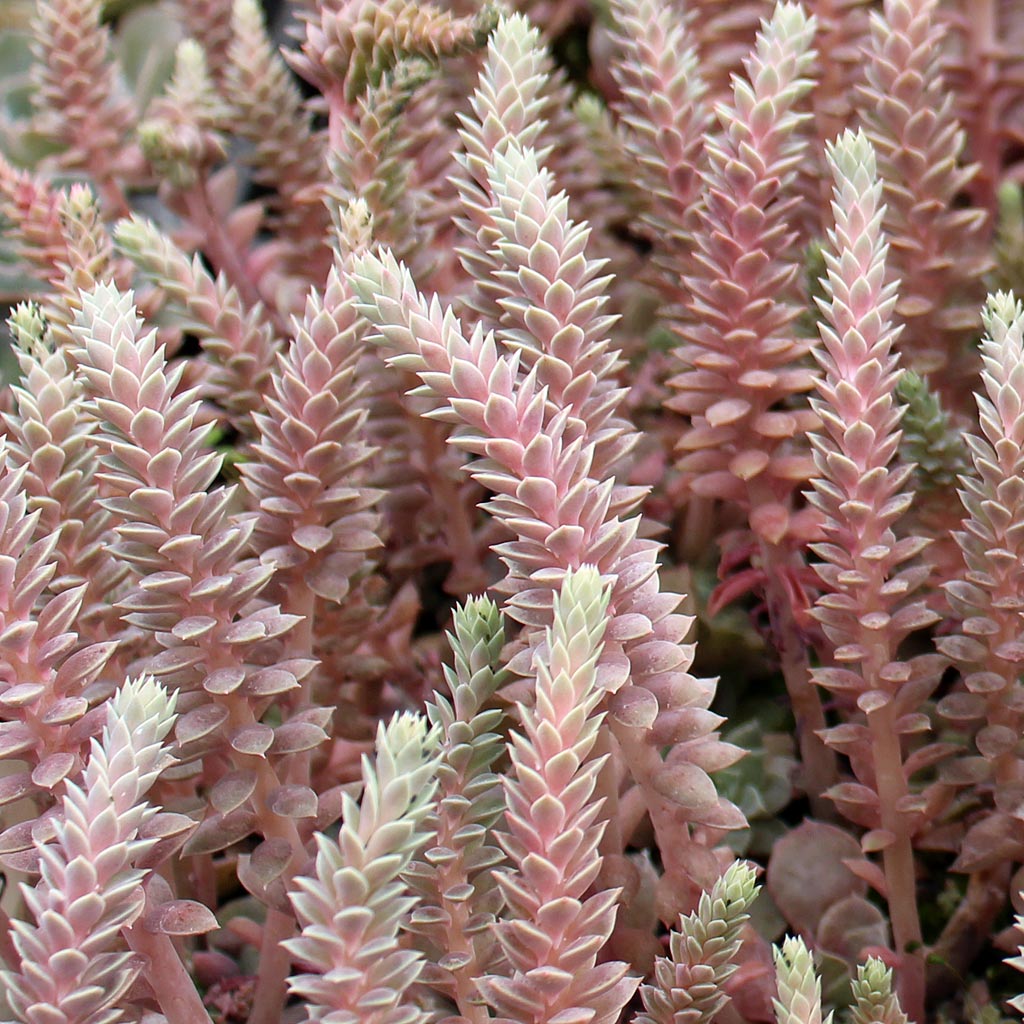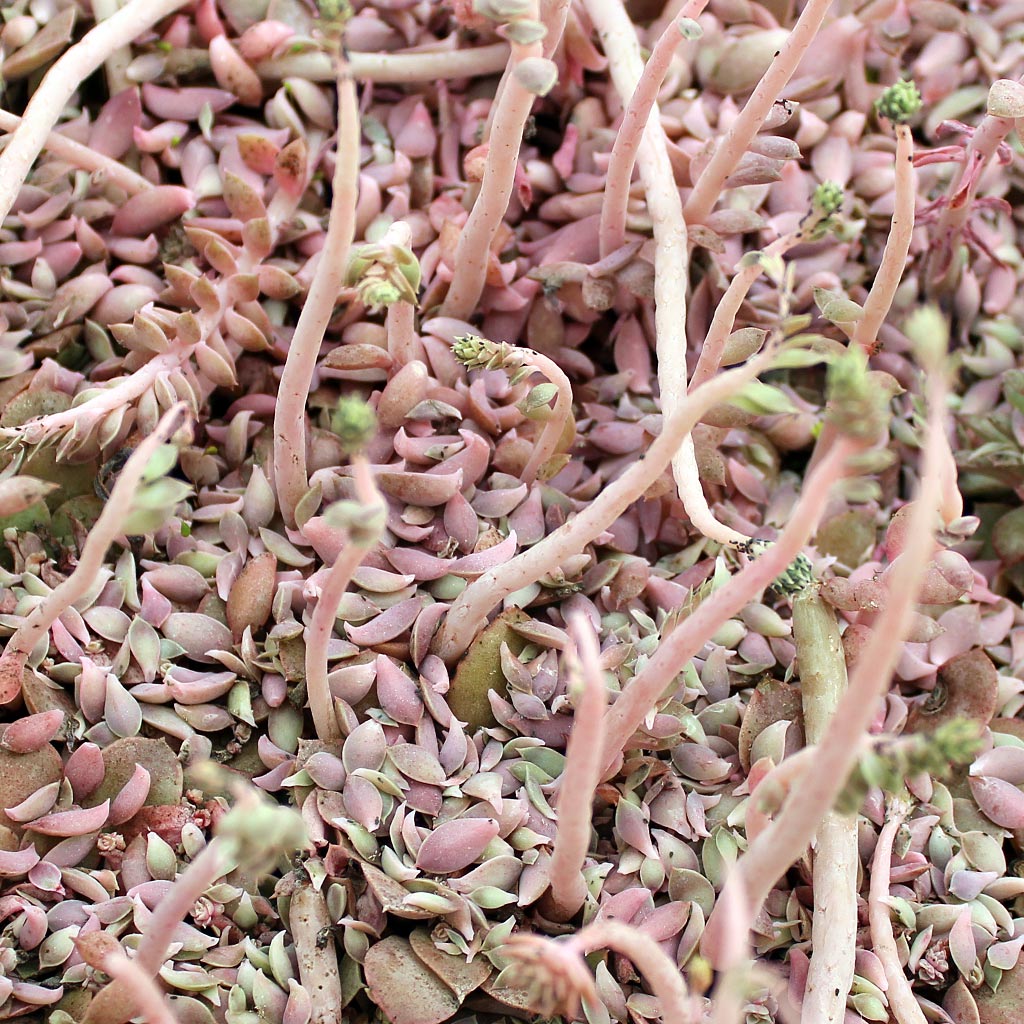Product Details
Highlights
Shattering Echeveria (E. diffractens) (Kimnach & Lau): Purple to pink rosette native to cliffsodes of Veracruz, Mexico. The Latin name "diffractens" means "breaking into pieces" or "shattering" in reference to the easily detached leaves, which helps the plant propagate itself. These leaves are also covered in a layer of farina, a waxy, powdery substance. It's this tendency that gives this species the common name Shattering Echeveria.
FRAGILE BLOOM STOCK - Petals fall off with the slightest touch. Full blooms on left, blooms after contact on right.


Echeveria need bright sunlight to maintain their colors and compact rosette form. They will not survive a hard frost, but if there is a risk of freezing temperatures they can be brought indoors to grow on a sunny window sill or under a grow light.
Like most succulents, they need great drainage and infrequent water to prevent rot. Pick containers with drainage holes and use well-draining cactus and succulent soil with 50% to 70% mineral grit such as coarse sand, pumice, or perlite. Water deeply enough for water to run out the drainage hole, then wait for the soil to fully dry before watering again.
Also known as "Mexican Hens & Chicks", Echeveria can produce new offsets or "chicks" around the base of the mother plant. These chicks can be left to form a tidy cluster or removed and transplanted. Additionally, Echeveria can be propagated from stem cuttings or mature leaves. Look to our Succulent Cuttings Guide for more information.
Product Size
2.0" Pot
Current Primary Color
Pink
All Seasonal Colors
Purple / Black
Bloom Color
Pink Bloom
Grow Zone (Hardiness)
Zone 10 (30F)
Recommended Light Conditions
Bright Indoor Light
Recommended Light Conditions
Filtered / Partial Sun
Maximum Height
3"-5"
Maximum Rosette Size
5"-6"
Growth Habit / Shape
Rosette
Seasonality
Year-round Color
Special Characteristic
Easy to Propagate
Special Characteristic
Pet Safe

THIS PLANT IS HARDY IN ZONES 10+
WHAT IS MY HARDINESS ZONE?
Videos
Echeveria soft succulents, sometimes known as Mexican Hens and...














